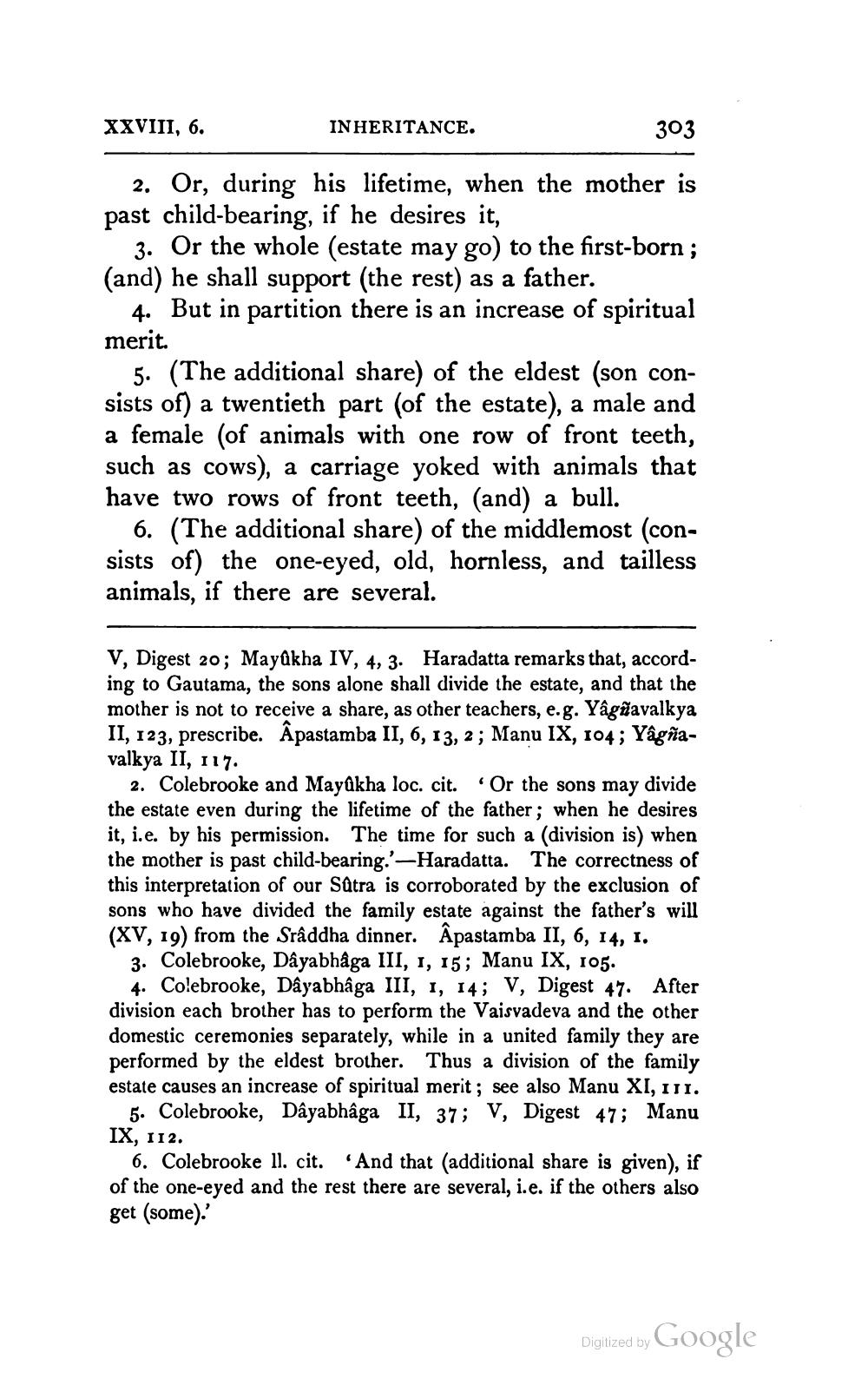________________
XXVIII, 6.
INHERITANCE.
303
2. Or, during his lifetime, when the mother is past child-bearing, if he desires it,
3. Or the whole (estate may go) to the first-born; (and) he shall support (the rest) as a father.
4. But in partition there is an increase of spiritual merit.
5. (The additional share) of the eldest (son consists of) a twentieth part (of the estate), a male and a female (of animals with one row of front teeth, such as cows), a carriage yoked with animals that have two rows of front teeth, (and) a bull.
6. (The additional share) of the middlemost (consists of) the one-eyed, old, hornless, and tailless animals, if there are several.
V, Digest 20; Mayûkha IV, 4, 3. Haradatta remarks that, according to Gautama, the sons alone shall divide the estate, and that the mother is not to receive a share, as other teachers, e.g. Yâguavalkya II, 123, prescribe. Âpastamba II, 6, 13, 2; Manu IX, 104; Yâgñavalkya II, 117.
2. Colebrooke and Mayûkha loc. cit. Or the sons may divide the estate even during the lifetime of the father; when he desires it, i.e. by his permission. The time for such a (division is) when the mother is past child-bearing.'-Haradatta. The correctness of this interpretation of our Sûtra is corroborated by the exclusion of sons who have divided the family estate against the father's will (XV, 19) from the Srâddha dinner. Âpastamba II, 6, 14, I.
3. Colebrooke, Dâyabhâga III, 1, 15; Manu IX, 105.
4. Colebrooke, Dâyabhâga III, 1, 14; V, Digest 47. After division each brother has to perform the Vaisvadeva and the other domestic ceremonies separately, while in a united family they are performed by the eldest brother. Thus a division of the family estate causes an increase of spiritual merit; see also Manu XI, III. 5. Colebrooke, Dâyabhâga II, 37; V, Digest 47; Manu IX, 112.
6. Colebrooke ll. cit. 'And that (additional share is given), if of the one-eyed and the rest there are several, i.e. if the others also get (some).'
Google
Digitized by




